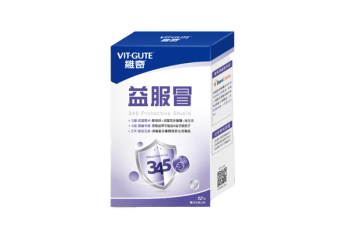
As Use of Cold Remedies among Children Rises, Ginseng May Be an Option
Two new studies published in the August 2008 issue of the journal Pediatrics are shedding new light on a problem that has long perplexed physicians: How to treat kids with colds.
While antihistamines and decongestants are the remedy of choice for many parents, some doctors have begun to question their efficacy, particularly in children. Unfortunately, most cold remedies-pharmaceutical and otherwise-have not been tested in kids, making their effectiveness unknown.
In the first study, researchers from the Slone Epidemiology Center at Boston University analyzed data on the use of cough and cold medicine by more than 4000 children between 1999 and 2006. The researchers found that during any given week, 10% of U.S. children used at least one such medication. Moreover, exposure to the medications was highest among children aged 2–5, followed by children under 2.
"Given concerns about potential harmful effects and lack of evidence proving that these medications are effective in young children, the fact that one in 10 U.S. children is using one of these medications is striking," says lead author Louis Vernacchio, MD, an assistant professor of epidemiology and pediatrics at Boston University’s School of Medicine.
Slightly more than 64% of the children used medicine that contained more than one active ingredient. The researchers also noted, however, that the use of cough and cold medications dropped during the survey period, declining from 12.3% between 1999 and 2000 to a low of 8.4% between 2005 and 2006.
In the second study, a double-blind, placebo-controlled trial, researchers evaluated the safety of a ginseng-based dietary supplement in children. The researchers used Cold-fX, a patented extract of North American ginseng (Panax quinquefolius) manufactured by CV Technologies Inc. (Edmonton, AB, Canada).
This study is the first time the supplement has been tested for pediatric use. In fact, the researchers also noted that despite the popularity of herbs as a treatment for cold and flu, few studies have examined their effectiveness and safety on children.
SOME GINSENG USES COVERED UNDER NEW LABELING REGULATION
A NEW RULE EFFECTIVE September 30 requires labeling for several commodities, including ginseng, to indicate a country of origin.
The country of origin labeling (COOL) regulation, promulgated by USDA, excludes items that are ingredients in processed foods. USDA considers items that have undergone a physical or chemical change, such as cooking, curing, and smoking, to be exempt. Items that have been combined with other commodities covered under the rule or other substantive food components may also be exempt.
In addition to outlining labeling requirements, the rule specifies penalties for suppliers and retailers of $1000 per violation. It also describes criteria that must be met for a product to bear a "United States country of origin" declaration.
Other commodities covered by the COOL regulation include certain meats, fresh and frozen fruits and vegetables, macadamia nuts, pecans, and peanuts.
For more information about the rule, visit
For the ginseng study, the researchers recruited 75 children between the ages of 3 and 12 during the winter of 2005–2006, 46 of whom later developed upper respiratory tract infections (URTIs). Within 48 hours of getting sick, the children randomly received either a placebo or an acute three-day treatment of Cold-fX.
The researchers uncovered no serious adverse events or differences in adverse events between the treatment and placebo groups.
"Given the growing body of evidence suggesting that ginseng may be an effective URTI prophylaxis, additional studies examining the safety profile of chronic daily use of ginseng in children also seem worthwhile," according to the researchers.
"These results are promising and support the development of a children's formulation," says Jacqueline Shan, PhD, president, CEO, and chief scientific officer of CV Technologies.
"Children suffer from colds and flu substantially more than adults," Shan adds. "We hope this trial will be viewed as timely and beneficial research in an area where there is a demonstrated need for safe and effective products to treat colds and flu in children."
While the trial's results were encouraging, the study was designed only to study the safety of the extract and not its effectiveness. Future studies will be needed to determine the ginseng extract's potential benefits for children.
Newsletter
From ingredient science to consumer trends, get the intel you need to stay competitive in the nutrition space—subscribe now to Nutritional Outlook.





